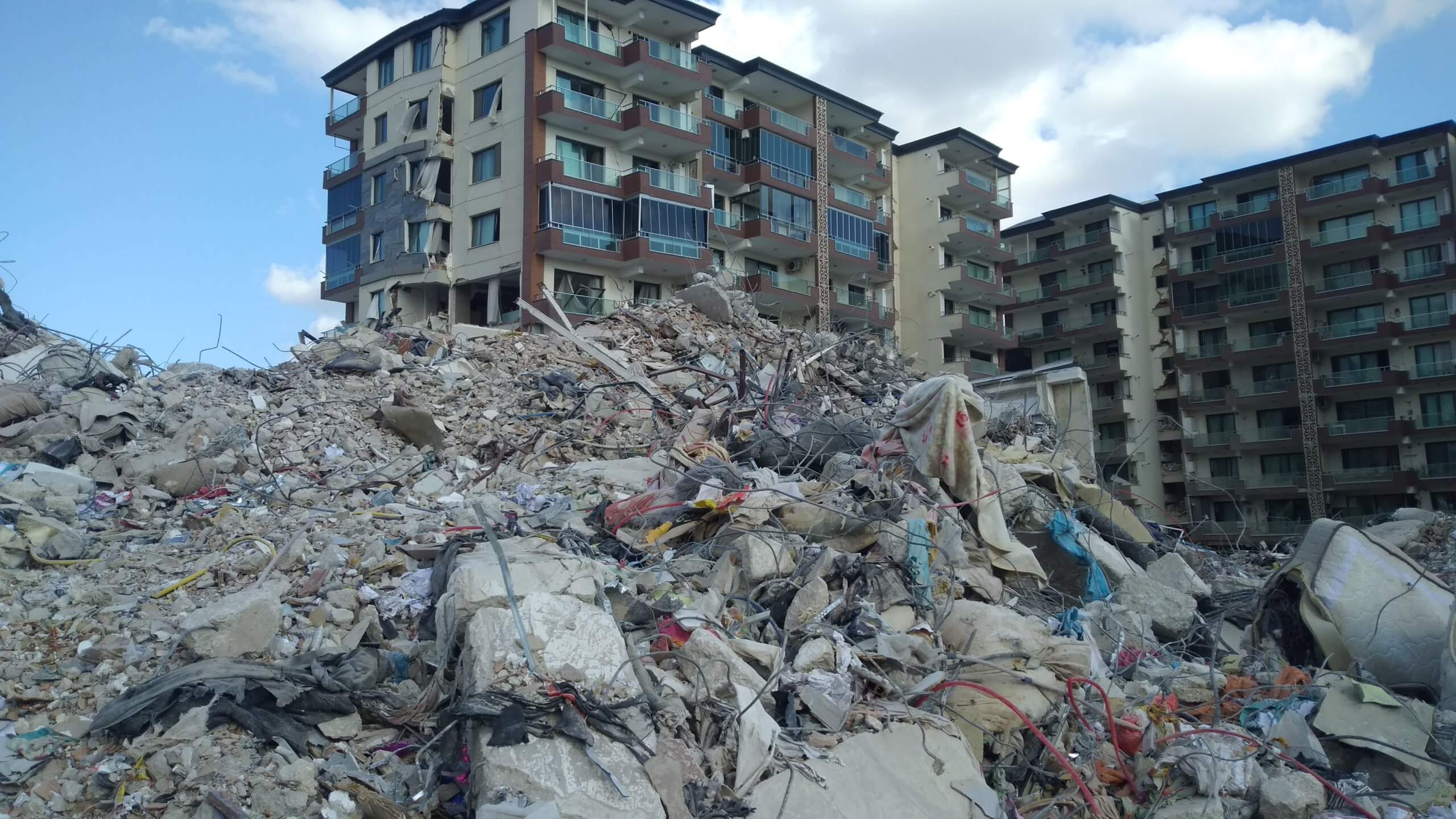Stay in the loop! Subscribe to our mailing list
On 6 February 2023, Türkiye was hit by two major earthquakes, with magnitudes of 7.7 and 7.6 respectively. The earthquakes also affected neighbouring countries, causing severe casualties and injuries in Syria especially, and damaging buildings in Lebanon, Iraq, Cyprus, and Jordan. According to official estimates, the death toll reached to more than 40 000 in Türkiye and more than 6 000 in Syria, along with 120 000 injured or hospitalised. Likewise, around 6 000 buildings collapsed, and three million people were displaced from the region.

Photo by Dilara Sengul
In the aftermath of the quakes, Turkish Minister of Internal Affairs declared level-4 emergency to call for international support. In response, more than 108 countries deployed their search and rescue teams and medical personnel to the region and delivered in-kind aid such as food and clothing. World Bank pledged USD 1.8 billion to be mobilised to Türkiye for relief and recovery efforts. Likewise, international organisations and NGOs launched appeals for donations and in-kind aid: EU decided to hold a donors’ conference on 16 March and UN called for USD 1 billion to assist people in most acute need in the region.
Turkish Higher Education communities also launched donation campaigns, joined search and rescue operations and took other actions to help victims of the earthquakes. Students, alumni and staff from various universities coordinated the collection, sorting, packing, and delivery of food, clothes, hygiene products etc. at various university campuses. They also provided translation services for the international rescue and medical personnel, volunteered to work in field hospitals established in the region and campaigned for blood donations.
In the 10 provinces directly affected by the earthquakes, education almost came to a complete halt. According to official figures, 631 000 university students –either studying at HEIs in these provinces or having families based there—were affected directly (roughly equal to 17.5% of all degree students in the country). On 9 February, Turkish Council of Higher Education (YÖK) announced the suspension of higher education in the country until further notice. Subsequently, on 11 February, President Erdogan announced that university education will be held remotely in spring term as state-run KYK dormitories will be allocated to earthquake victims.
HE stakeholders criticized this decision as they argued that it would further damage the quality of education and students’ psycho-social wellbeing, already adversely affected by the Covid-19 pandemic. Many protested the decision on the grounds that hotels, public guesthouses, and other state-run residences could be used as shelter for victims instead of forcing students to leave their dormitories. However, the government implemented the decision swiftly without compensating students for alternative accommodation or covering their travel costs of displacement.
As criticism scaled up significantly, before the start of the second semester on 20 February, YÖK decided to pair each university from the earthquake area with another university across the country to coordinate their education activities in collaboration. Likewise, the government allocated a small portion of KYK dormitories for those with families from the disaster region, yet many students still face lack of accommodation and limited access to education.
Turkish students and faculty members outside Türkiye called for more solidarity and action from higher education communities in the world. Earlier this month, ACA’s members Nuffic and OeAD issued solidarity statements for those affected in Türkiye and Syria. Sharing this position, ACA calls for action and solidarity from the European Higher Education sector and expresses its deep sympathies for the victims of the earthquakes.